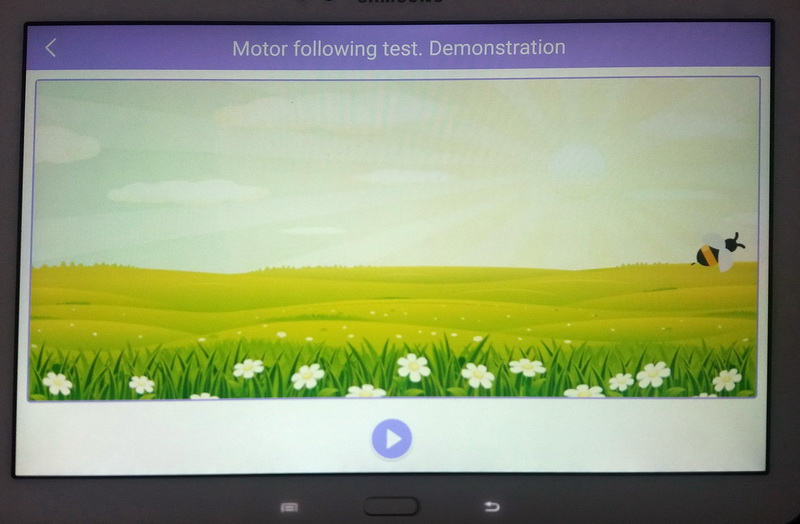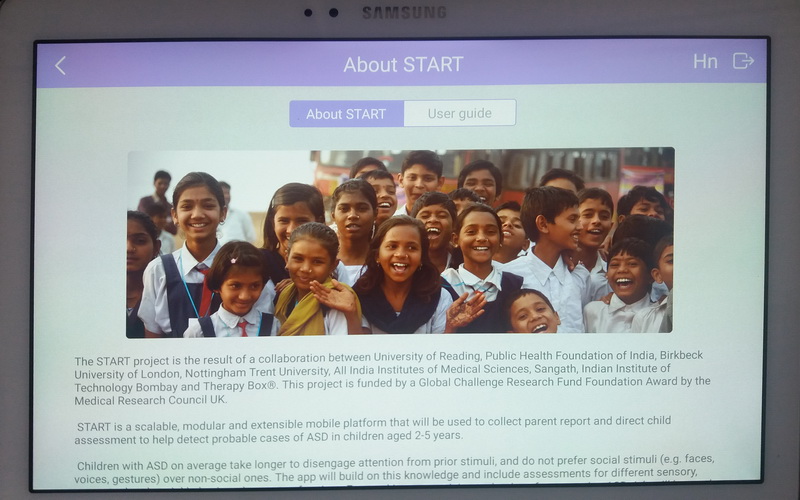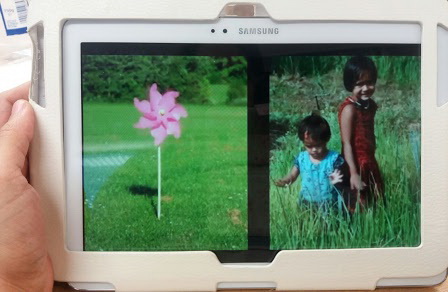START: a Tablet-Based Platform to Detect Autism Risk
Description Screening Tool for Autism Risk Using Technology – START: Developing a Tablet-Based Platform to Detect Autism Risk in Low-Resource Settings
Presenters: Indu Dubey & Bhismadev Chakrabarti, School of Psychology and Clinical Language Sciences, University of Reading, Reading, UK
Schedule: Thursday 7th June 16:30-17:00, G34
Description: The “Screening Tool for Autism Risk using Technology” (START) project is developing an open-source, scalable autism screening tool in the form of an app that can be run on a tablet computer with minimal training. This app will be demonstrated to at the presentation. The app includes behavioural tasks to measure social preference, motor function, sensory interest, and has a hybrid parent-report questionnaires. A key innovation is tablet-camera based eye tracking, allowing capture of very low-resolution gaze direction data for coarse measures such as preferential looking and attentional disengagement, without the need for an external eye-tracker. Motor function tests are built in light of the emerging data from similar tablet-based tasks on the iOS platform (Anzulewicz, Sobota, & Delafield-Butt, 2016; Belmonte et al., 2016). The app also includes a task measure of social motivation previously associated with a group difference in children with autism (Ruta et al., 2017). Finally, the app includes a free-play section that provides an opportunity to video-record parent-child play interaction for subsequent analysis.
We will have tablet computers with the app that will be available for the attendees to explore various tests.
References
Anzulewicz, A., Sobota, K., & Delafield-Butt, J. T. (2016). Toward the Autism Motor Signature: Gesture patterns during smart tablet gameplay identify children with autism. Scientific Reports, 6(1), 31107. https://doi.org/10.1038/srep31107
Belmonte, M. K., Weisblatt, E. J., Rybicki, A., Cook, B., Langensiepen, C. S., Brown, D. J., ... & Karanth, P. (2016, October). Can Computer-Assisted Training of Prerequisite Motor Skills Help Enable Communication in People with Autism?. In Interactive Technologies and Games (iTAG), 2016 International Conference on (pp. 13-20). IEEE.
Ruta, L., Famà, F. I., Bernava, G. M., Leonardi, E., Tartarisco, G., Falzone, A., … Chakrabarti, B. (2017). Reduced preference for social rewards in a novel tablet based task in young children with Autism Spectrum Disorders. Scientific Reports, 7(1), 3329. https://doi.org/10.1038/s41598-017-03615-x




.jpg)